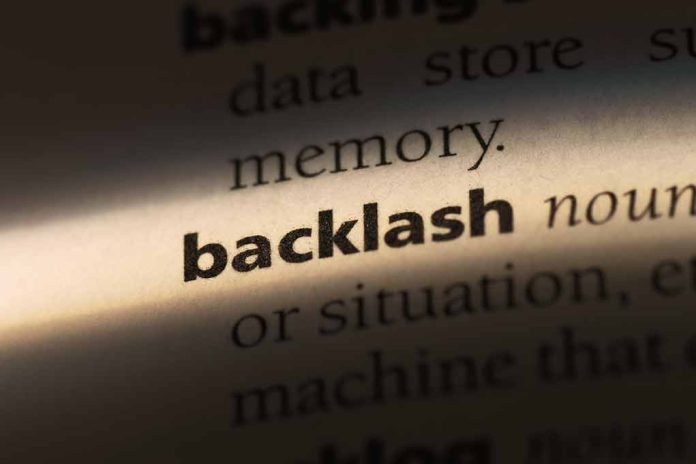
President Joe Biden’s pardon of his son Hunter ignites fierce debate over presidential powers and potential reforms.
At a Glance
- President Biden granted Hunter Biden a “full and unconditional pardon,” citing political persecution.
- Special counsel David Weiss objected to dismissal of Hunter’s tax charges, countering claims of unfair prosecution.
- The pardon has sparked criticism from both Democrats and Republicans.
- Lawmakers and commentators call for reform of presidential pardoning powers.
- Debate centers on balancing presidential discretion with accountability.
Biden’s Controversial Pardon Decision
In a move that has sent shockwaves through Washington, President Joe Biden has granted his son Hunter Biden a “full and unconditional pardon.” The President justified this action by claiming his son was the victim of unfair prosecution influenced by political motives. This decision has immediately drawn intense scrutiny and criticism from across the political spectrum, raising questions about the extent and potential misuse of presidential pardoning powers.
The pardon comes in direct opposition to Special Counsel David Weiss’s objections to the dismissal of Hunter Biden’s tax charges. Weiss argued that there is no legal precedent for dismissing an indictment due to a pardon, emphasizing that such an action does not erase guilt or conviction. This clash between the President’s decision and the ongoing legal proceedings has intensified the debate surrounding the appropriate use of executive clemency.
Bipartisan Backlash and Calls for Reform
The fallout from President Biden’s decision has been swift and widespread. Both Democrats and Republicans have voiced their concerns, with many viewing the pardon as an undermining of the judicial process. Representative Gerry Connolly, a Democrat, has been particularly vocal in his criticism, highlighting the need to revisit and potentially reform the constitutional provision granting presidents broad pardoning powers.
DEMOCRAT PROPOSES BAN ON PRESIDENTS PARDONING FAMILY
Rep. Gerry Connolly has suggested legislation to prohibit presidents from pardoning family members.
The proposal follows Biden’s Sunday night pardon of Hunter, sparking fresh debate over presidential pardon powers.… pic.twitter.com/08uySqOQHj
— Mario Nawfal (@MarioNawfal) December 2, 2024
While some GOP lawmakers expressed understanding of Biden’s paternal instincts, they didn’t hesitate to criticize what they see as a reversal of his previous stance against pardons. This shift in position has led to accusations of hypocrisy and raised questions about the consistency of Biden’s ethical standards.
Implications for Democratic Messaging
The pardon of Hunter Biden could potentially weaken Democratic messaging against former President Donald Trump, who faces his own legal challenges. Critics argue that this action undermines the party’s stance on accountability and the rule of law. Senator Joe Manchin even suggested that Biden should also pardon Trump for the sake of balance, further complicating the political landscape.
Political commentators and public figures have not held back in their assessments. Charlamagne Tha God and others have publicly questioned the justification for the pardon, adding to the chorus of voices calling for a reevaluation of presidential pardon powers. This growing sentiment reflects a broader concern about the potential for these powers to be exploited or perceived as tools for nepotism.
The Path Forward: Balancing Power and Accountability
As the dust settles on this controversial decision, lawmakers and constitutional experts are grappling with the challenge of how to reform the pardoning system. The goal is to introduce more transparent checks and balances that can safeguard against misuse while preserving the original intent of this presidential power. This debate is likely to continue, potentially leading to proposals for constitutional amendments or new legislation to clarify and limit the scope of pardoning powers.
The Hunter Biden pardon has undoubtedly opened a Pandora’s box of legal and ethical questions. As the nation moves forward, the challenge will be to find a balance between presidential discretion and the necessity for accountability, ensuring that the power to pardon remains a tool for justice rather than a potential avenue for abuse.
Sources:
- House Dem Suggests Revisiting Pardon Power of Presidents
- Hunter Prosecutor Says ‘No Evidence’ of Persecution, Objects to Charges Dismissal







